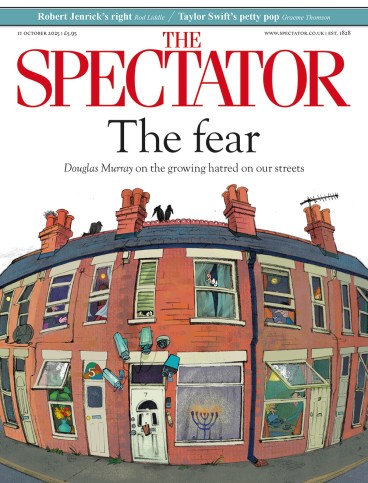
In 2022, at the age of 58, Justin Currie – singer, bass-player and main songwriter with the Scottish rock band Del Amitri – faced what might be mildly termed a series of setbacks. In short order his mother died, his long-term partner suffered a catastrophic stroke, leaving her requiring constant care, and he was diagnosed with Parkinson’s.
About the first two there was not much to be done but weep. When it came to the third, Currie decided he would manage the ‘Ghastly Affliction’ (the ‘GA’ as he calls it) as best he could with medication and keep playing music as long as he was able to. The following year his band undertook a mammoth 52-day trek across North America as support act to the 1990s Canadian rockers the Barenaked Ladies. What Currie got out of this was a way to maintain his sense of identity, for he has been a professional musician since he was 19. ‘My life is fucked. Fucked,’ he writes. ‘Now tell me where I’m going tomorrow.’ What we get out of it is one of the most extraordinary rock memoirs I have ever read.
Speaking as someone who has spent time around musicians who have enjoyed varying degrees of success, I know that once you are in your fifties or older the only way to do a long US tour in any degree of comfort is to be as big as U2 or Oasis, with the tower clearing you for take-off and the motorcade and the dedicated massage room backstage. Otherwise, it’s coffin-sized bunks, 2,000-mile drives, late nights and extremely long days. And it is into all this that Currie duly takes us, as the tour winds its way through the heartlands and the band play shows in cowsheds, state fairs and parking lots. A glance at the itinerary gives you flavour enough of the routing: Nampa, Idaho…Troutdale, Oregon…Red Bank, New Jersey.
Given that Currie is – by necessity – sober while on tour nowadays and going to bed at a reasonable hour, this means early rises and long walks to fill the empty hours between waking and soundcheck. These take him through the strip malls and deserted downtowns of Middle America as he reflects on the wreckage of his life. If this sounds like a deeply unpromising reading experience, I can only assure you it is far from it. For Currie is fantastic company, never losing his sense of humour in the face of the banal viciousness of the universe.
He is also a man of thoroughly sound prejudices. Whether he’s lamenting the ‘counterfeit counterculture’ of yet another hipster coffee shop pumping out the Stones and the Doors to accompany their $20 sandwiches, or quietly celebrating the anonymous stranger who had ‘the good sense’ to deface a photograph of Queen Victoria with ‘a cock and balls poking at her right cheek’, if you’re a man of a certain age, you’re right there with him.
A US tour can mean coffin-sized bunks, 2,000-mile drives, late nights and extremely long days
‘I dip into a TK Maxx out of sheer boredom’… ‘I find myself in a shopping centre…there’s a Le Creuset outlet, a hiking shop’… ‘I cross the street to the National WWII Museum…’ Currie is all of us marooned in a provincial town with a few hours to kill. But amid the ennui there is the good stuff too: the musical moments onstage that go just right; art galleries that please; a great cup of coffee; a sunset. ‘Moments of joy among the murderous diminishing,’ as Currie says in a Larkinesque flourish.
And by the end of the book even the ennui has become addictive. Hang on, Justin, I found myself inwardly saying as the remaining pages grew thinner. Let’s go for another walk. Find another strip mall. Another bad diner. What we are feeling here, the narrative imperative he’s established, is don’t go. Don’t give into the Ghastly Affliction.
On an existential level, we have nothing less than a latter-day King Lear, bereft and raging in a retail park. A man close to the end of his career reflecting on how it went with the scorecard. ‘I always wanted my gravestone to read: “I Wasn’t That Good’’,’ he writes, in characteristically self-effacing manner. As he’s on intimate terms with the greats, Currie is given to finding himself wanting. A footnote at best. Like most of us. But most of us didn’t write songs as good as ‘Roll to Me’, ‘Always the Last to Know’, ‘Kiss This Thing Goodbye’ or ‘Hammering Heart’. (When it comes to chiming guitar albums, Del Amitri’s 1985 debut has survived the past 40 years with far more sonic grace than its more lauded contemporaries the Smiths, and Aztec Camera’s High Land, Hard Rain.) Most of us haven’t had top ten hits in America, sold six million albums or filled arenas.
And most of us wouldn’t be able to map our misfortunes with as much precision, courage and humour as Justin Currie manages in the pages of this truly remarkable book.








Comments